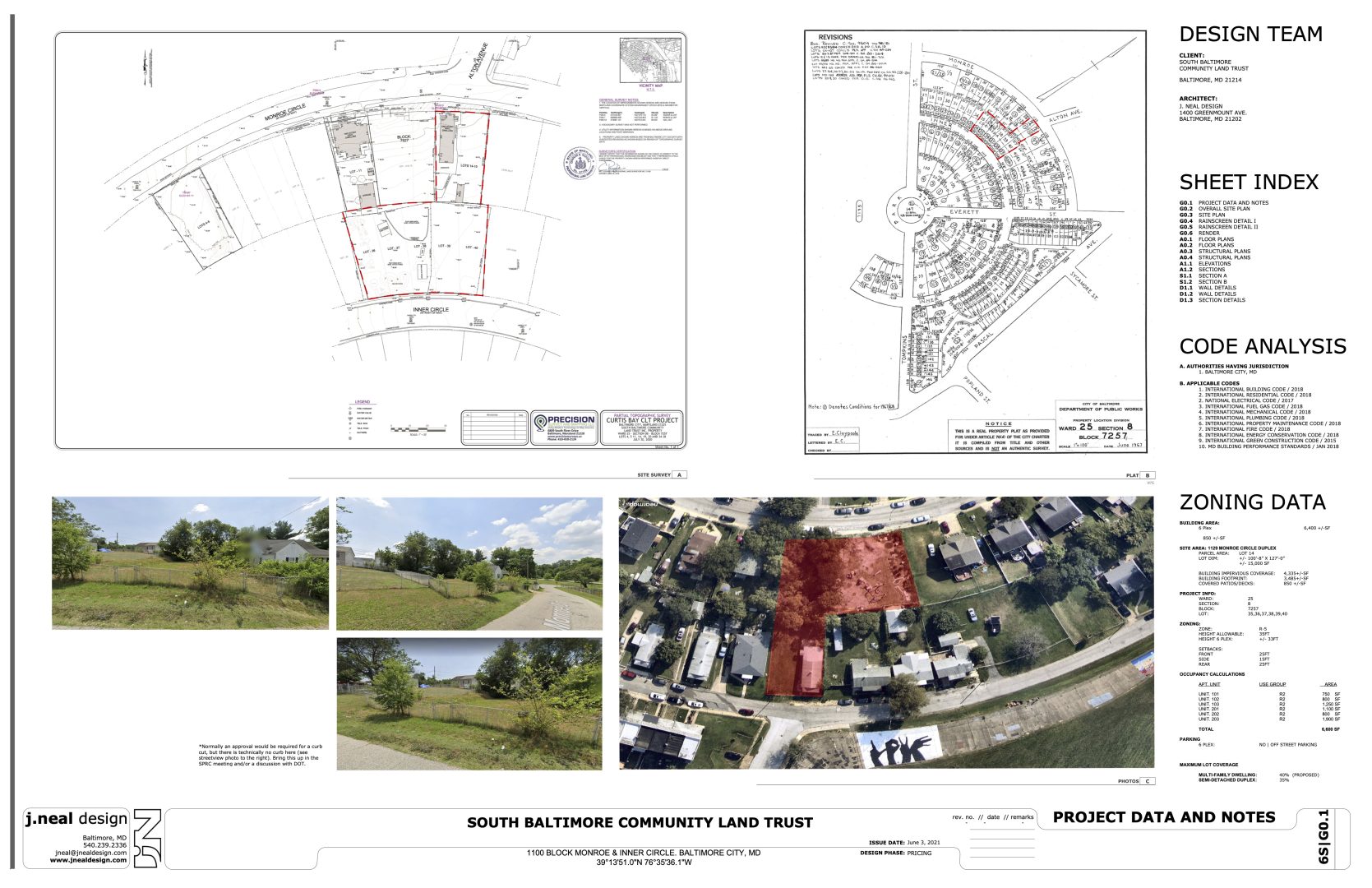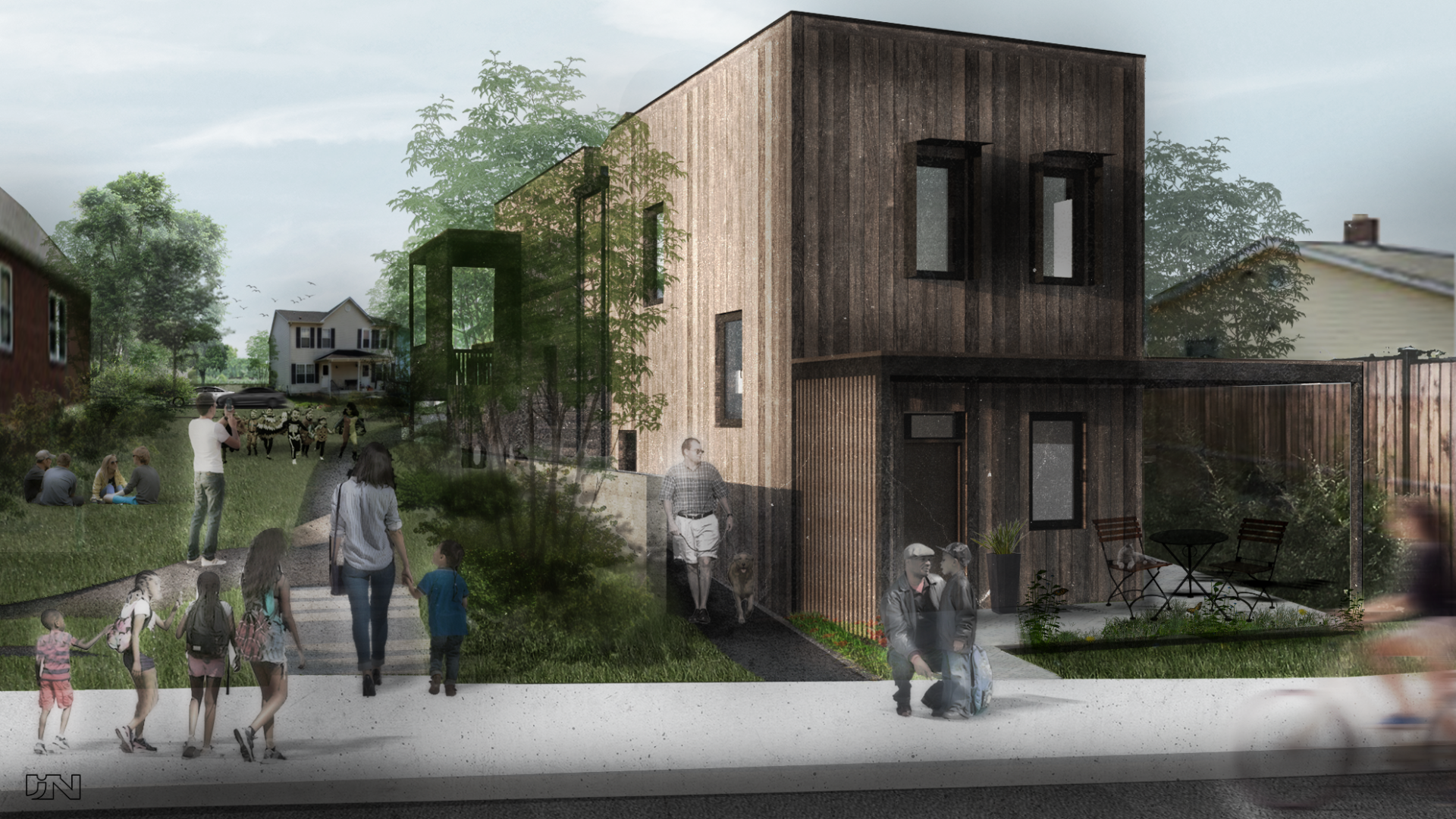Our mission at SBCLT is to create community led development without displacement and a just transition to zero waste in Baltimore. As we work together to create a healthy environment free of toxic incineration and dangerous dumping we are also building beautiful permanently affordable homes on democratically owned land to realize the communities we all deserve.
Today, we are pleased to share some amazing media coverage you may have missed on the momentum within Baltimore’s Community Land Trust movement to create the conditions we need to do this work at the scale required. As you read Jared Brey’s piece published at Next City, we have a couple immediate asks:
- First, think of anyone (yourself included) who would like to learn more about community land trusts and permanently affordable housing in Baltimore and register for a monthly orientation sessions here.
- Second, share our CLT homeowner interest form with anyone you know who is looking to gain stable, quality affordable homeownership in Baltimore.
- Finally, take a step to get directly involved with building the movement for development without displacement and zero waste by signing up to volunteer with us. All skills, interests and time commitments are welcome!
Baltimore Land Trusts Plug Away at Vision for Development Without Displacement
by Jared Brey and originally published here at Next City in April 2021
Sometime later this year, or early next, the South Baltimore Community Land Trust will cut the ribbon on its first project: eight new, energy-efficient housing units behind Benjamin Franklin High School, sold to people in the Curtis Bay neighborhood who earn less than 50 percent of the area median Income, and kept affordable in perpetuity through community control of land. Like other land trusts, the SBCLT will maintain ownership of the land underlying the new homes and sell the improvements to low-income buyers. When those buyers decide to move out, they’ll split any equity they may have built with the land trust, which will then sell the house to another low-income buyer.
Meleny Thomas, executive director of the South Baltimore Community Land Trust, says the group is hoping to find buyers “that have roots in Baltimore city and understand the true beauty that we have here.”
“We hear so much negativity about Baltimore, but there’s some amazing things going on,” Thomas says. “And we want to make sure that our residents and the community can partake in what is happening.”
One of the “amazing things” happening in Baltimore is the evolution of the South Baltimore Community Land Trust itself, and other groups like it. Some of the land trust’s members got their start in activism as early as high school, organizing to prevent a new trash incinerator from being built in Curtis Bay. Over time, working with groups like United Workers, those organizers translated their efforts into a broader vision for “development without displacement” in communities like Curtis Bay. They were instrumental in campaigning to create the city’s new Affordable Housing Trust Fund, and later pressuring the city to put money into it. Those efforts are starting to show returns. Last month, the Baltimore Department of Housing and Community Development announced that it was awarding $2.25 million to three community land trusts, SBCLT among them, to support the development of 26 new units of housing. It’s the Trust Fund’s first award to community land trusts in Baltimore. And though the awards are modest, Thomas says, they directly support the improvement of the communities that helped create them.
“The reason grants like these are vital to community land trusts is because the subsidy is never wasted, but stays with the home to preserve and create long-term affordability,” Thomas says.
In addition to community land trusts, the Affordable Housing Trust Fund has so far helped to support construction and preservation of rental housing and inclusionary housing in multifamily projects. All of its awards are aimed at serving families that earn less than half of AMI, which, for Baltimore, equates to a cap of $52,000 a year for a family of four.
The Trust Fund is small. It hasn’t yet been able to meet the $20 million a year that advocates were pushing for. As of February, the Fund had collected a total of around $19.5 million since Fiscal Year 2019, and was anticipating spending between $16 million and $18 million a year, with around $12 million already committed. But it’s a good vehicle for supporting innovative projects that might not move forward without the extra support, says Matt Hill, an attorney with the Public Justice Center and commissioner for the city’s Affordable Housing Trust Fund. Projects like land trusts that invest in community control and shared equity have been prioritized in the Trust Fund’s spending plans for its first few years.
“Land trusts have this potential to really engage the community in a way that’s not just perfunctory, not just holding a meeting one time to get people’s input, but to have ongoing community control over their own development,” Hill says.
The Trust Fund is stocked partially by a transfer tax on property sales above $1 million, but so far, that tax has not generated as much as the city hoped. That may be in part because of how the pandemic affected the commercial real estate market, says John Mobley, the city’s Affordable Housing Trust Fund manager.
“Right when we got started, that’s when the coronavirus hit. We’re at about half of the revenue collection we expected originally,” Mobley says.
But even before the pandemic hit, the transfer tax was bringing in less than expected, according to Hill. That makes it extra critical that the Fund support projects that exemplify the type of housing, and development processes, that will most benefit Baltimore neighborhoods, Hill says.
“You’re reaching folks who often don’t have access to stable homeownership in the market, providing them that opportunity to build equity in a way that maintains affordability,” he says. “When we talk about Baltimore City residents wanting to participate more actively in the redevelopment of their neighborhoods, this is a really unique model that has massive benefits.”
For the South Baltimore Community Land Trust, the Trust Fund award of $750,000 is only part of the funding. The project also received $200,000 in state funding and another $200,000 from a city bond initiative, according to Thomas. It’s seeking another $350,000 in bond funding, along with some crowdfunding and potentially financing from the state Net Zero Loan Program, she says. The land trust expects to add two more homes in a second phase of the project.
In Curtis Bay, where the South Baltimore Community Land Trust is working, the neighborhood hasn’t really seen development of any kind in about 20 years, says Thomas. Hundreds of vacant homes and lots attract drug use and crime, she says, and of the occupied homes in the neighborhood, most are rentals. The push to develop new, affordable, for-sale housing is in fact connected to a longer campaign to create a Zero Waste Plan for the City of Baltimore, which was rooted in community activism to close a trash incinerator in South Baltimore, led by members of the SBCLT, as Next City has reported. The neighborhood has high rates of pollution, and life expectancy is lower in South Baltimore than other parts of the city.
“Where you live should not affect your health. It should not affect your lifespan. But it does,” Thomas says.
That’s part of why the group is pursuing passive-house energy efficiency standards in its first project, Thomas says. The homes will be designed to be airtight and well-insulated, and to keep energy costs low for occupants. In Curtis Bay, Thomas says, it’s as much a benefit to keep pollutants out of homes as it is to reduce energy consumption overall.
“We’re in a community with very high pollution,” Thomas says. “How can we create homes that will help, and not add to that burden?”
Thank you for your commitment and support to grow the movement in Baltimore and beyond.

